Interview with Tiffany Pitts: 'Just having a good idea of a book doesn't give you a free pass'
Tiffany Pitts
grew up in the Seattle area in a time when the Super Sonics were huge and
Starbucks was just a store at the end of the Market. Tragedy struck early in
her life as her family moved to New Jersey mere months before Bon Jovi’s
“Slippery When Wet” album hit record stores. It took nearly a decade to wean
herself off the hairspray. But Seattle called her back, so she went; eventually
earning a degree in Botany (pronounced “Bar tending”) at the University of
Washington.
She made one
more valiant attempt to leave the PNW after college by travelling around the
country doing not much of value and making very stupid decisions. She is
thankful every day that the internet was not a huge deal in those years. Then
Seattle called again so she picked up and moved home where she spent many years
being a scientist of middling talent in several labs that she absolutely did
not blow up—except for that one time and everyone agreed not to talk about that
any more.
Now she divides
her time between writing fiction and raising two kids who are wonderful but,
for some reason, will not stop licking things.
Her latest book
is the action/adventure/humorous/scifi, Double
Blind.
For More Information
About the Book:
Delilah
Pelham’s brother, Paul, is missing. She should probably be worried about that
but honestly, he’s been in trouble since the day he learned the words “trust
me." In fact, if it weren’t for his roommate, Carl, she would gladly leave
him to his fate.
Carl is a good guy, even if he’s a bit of a dork. Okay, a large slice of a dork. Possibly the entire cake.
But he wants to help, as do his gamer friends, which is how Deli finds herself in the middle of Hong Kong with the King of the Dorks, running from creepy guys with slicked-back hair and shiny black guns.
Back at home,
Carl’s friends aren’t faring nearly as well. All they had to do was monitor the
situation and feed Deli’s cat while she was gone. How could that possibly end
in bloodshed?
There is an
answer, of course, but no one ever thinks to ask the cat.
For More Information
- Double Blind is available at Amazon.
- Pick up your copy at Barnes & Noble.
- Discuss this book at PUYB Virtual Book Club at Goodreads.
Q: Welcome to The
Writer's Life! Now that your book has
been published, we’d love to find out more about the process. Can we begin by having you take us at the
beginning? Where did you come up with
the idea to write your book?
I remember thinking about nanobots. Specifically, how cool it would be if you could build one that gave you powers. Not super powers like invisibility or laser-eyes, more like middling powers like faster healing abilities or the ability to concentrate with the TV on—stuff like that. That could happen, right? Maybe? I didn’t know. Instead of shrugging my shoulders and moving on, my brain decided to spend the entire next week dreaming up ways it could work. I came up with a vibrationally-activated nanobot that could use magnetic polarity to attract and bind amino acids into proteins. Then proteins would set off enzyme cascades resulting in higher bone regrowth rates or peak serotonin levels –something that may give a body an edge.I mean, I really thought the whole thing out. I don’t even know why. Because it was fun I guess. But no one wants to read a bunch of pseudo-scientific mumbo-jumbo about tiny robotic superpowers so I started to create this story around my idea. And the more I wrote, the more the story became its own thing.The end product has about 93% less nanobots than my original idea but that’s okay because all the other stuff is pretty exciting. Even the nanobots think it’s exciting.
Q: How hard was it to
write a book like this and do you have any tips that you could pass on which
would make the journey easier for other writers?
I don’t find it easy to write anything. I’ve heard of people writing book-length rough drafts in a month and I’m blown away. I tried it once. It turned out…weird. I still have no idea what that book was about.I can tell you what not to do. I know a lot of those types of things. But I can’t make your writing journey any easier. You would be a poor writer if I could. It’s about you and your process, not me and mine. Just having a good idea for a book doesn’t give you a free pass. You still have to find your own voice. I don’t know where you will find yours but found mine buried deep within pages and pages of crappy writing. It’s not a direct route but it’s the only path I know. And it works really well.Try it. Write the worst, most mistaken thing you’ve ever done. Be verbose. Use all the adjectives. Don’t let any of your characters simply “say” something. Make them “hiss” or “whisper” or “shout” or “scream” – all of them. Rearrange your scenes to disrupt narrative flow. Write however it comes into your mind. And then stick it in a drawer so you can go back and read it a week later. It will all be crap and you’ll think, “Great Ceasar’s Ghost, what the hell am I doing? This is horrible!”Except it won’t be. Not all of it anyway. There will be one or two little nuggets there that are actually quite good. And then you get to pick those out, hide all the rest in a drawer (or a fireplace) and pretend like all you ever wrote were those two clever little bits.
People refer to this as ‘honing your craft’ but that’s just polite talk for “Writing a lot of crappy stuff to get at the good ideas.” Everyone does it. I don’t know a single published writer that wouldn’t admit to pages and pages of crap in a drawer somewhere. I wrote five pages of it just trying to answer this question.
Q: Who is your
publisher and how did you find them or did you self-publish?
Both, sort of. I started out trying to get an agent. For a while, I really gave it my best shot. I wrote a pitch. I hated my pitch. I rewrote my pitch. I went to conferences. I pitched my horrible pitch at agents who ranged from the very sweet (but still not interested) to dismissively rude (and really not interested).
After a few conferences full of anxiety and rejection I realized I didn’t want to do it anymore. Self-publishing looked so much more accessible. It knew it would be a lot of work but at least it was a step forward. I went home and switched gears.
I learned everything I could about self-publishing and improving my publicity skills. I asked around and got recommendations for professional editors. I asked opinions about graphic designers. I asked for help and so many wonderful people reached out to me. I talked about it constantly on-line—not in a “HEY BUY MY BOOK!” way more like “I think I’m going to do this next. That sounds good, right?” I made it as entertaining as possible because I had no idea what I was doing and if people were listening, they might also be willing to share their knowledge. Friends and family were so incredibly supportive. When everything was a perfect as we could make it, I hit Publish. Then I cried for about twenty minutes. So many people helped me get there and all I ever did was ask.
The next day I received an email from an old friend explaining how he’d been following my (very public) path to publishing and wanted to help too. He had a very good friend in the publishing industry. He’d talked with her about my book and how much he enjoyed my writing. Would I like to talk with her about publishing my book?
At first, I didn’t know what to say. “WTF, REALLY?” didn’t seem appropriate. Plus, I was skeptical. Things like that don’t happen in real life, do they? I didn’t know. I also didn’t have anything to lose so I set up an appointment. Later that week I met with a very kind (and not rude at all) Katherine Sears of Booktrope Publishing. She even bought me a cup of coffee. I signed a contract later that week.
Q: Is there anything
that surprised you about getting your first book published?
How rapidly the publishing paradigm changed! I walked into this world at a very strange time. When I first started writing this book self-publishing was almost taboo. You didn’t talk about it. Telling people you self-published was akin to farting really loud in polite company. Everyone just sort of looked embarrassed for you and tried to pretend you didn’t do it. A year later it was still widely assumed that only losers who couldn’t get book deals self-published. But PNWA that year questions were being asked in dark corners and it in line for the bathroom. How do you self-publish? And tell me again why it’s a bad idea?
The next year those same questions were being asked in conference workshops and there were instructors giving answers. Self-publishing was making people money. Not a lot of money but enough to be a viable option open to everyone. And not long after that we started seeing self-published millionaires. It was crazy! It was a soap opera and although everything seems to be calmer now, it’s still going on. It is fascinating.
Q: What other books
(if any) are you working on and when will they be published?
I’m in the middle of writing Wizzy Wig, the second book in the Thanatos Rising series. Jake Denny is still hopelessly in love with Pizza Girl. Even though they are officially friends now he still doesn’t know how to talk to her. His chit-chat always seems to end up focused on what he knows best: video games, Kung-Fu movies and theoretical physics. When Pizza Girl remembers one of his experiments and decides to help him out, the resulting twist in reality puts everyone in danger (or as in the case of some really tall people, goofy 80’s movies). Toesy knows what is going on but he’s busy trying to save a fatalistic marsupial from a crazed accountant.
It should be finished this fall. I cannot wait to see how it turns out.
Q: What’s your
favorite place to hang out online?
I blog once or twice a month on snickerpants.com and I can reliably be found on my Facebook author page (Tiffany Pitts, Author). I occasionally venture onto Pinterest with design projects from my blog or pictures from my mother in law’s tree house because it is incredible (and also because I am so jealous I could spit). I like Twitter (@snickerpants) but I can’t hang out there too often because it makes me swear more and my husband starts to worry.
Q: Finally, what
message (if any) are you trying to get across with your book?
The clichéd version of it is “Don’t judge a book by its cover.” Although I prefer to think of it as “People are more than you think they are.”
I have this weird running theme in my life where I meet people and after getting to know them a bit better they confess that they assumed I was [XXX] “until I got to know you.” [XXX] being a laundry list of not-very-nice adjectives: unapproachable, weird, arrogant, slightly crazy and one time (notably) a stinking hippy.
I wanted to write something that would show how preconceived notions are simply that: preconceived. Until you talk with someone, get to know them a little, maybe flee from the mafia with them, you can’t make a fully informed decision about their character.
I’d like to add that sometimes people drive beat up old Volkswagens because they are travelling around the country and can’t afford a new car. It doesn’t mean they’re communists. Or socialists. Or that they smell. Although they might. I can’t remember.
Q: Thank you again
for this interview! Do you have any
final words?
Come geek out with me on line! I love hearing about people and the projects they’re passionate about. I know that sounds cheesy but it’s true. I really like seeing how and what people chose to create. Find me on Facebook or twitter and show off! I promise to make all sorts of ‘ooh aah’ noises.





















































































































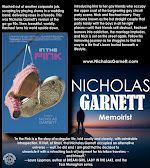


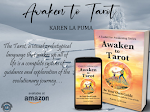
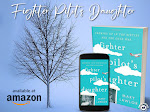
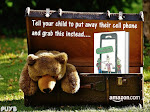
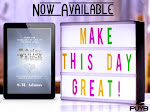


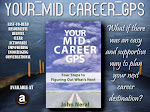
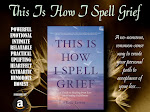
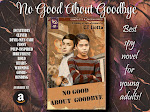

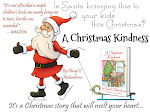
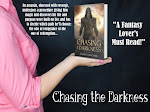
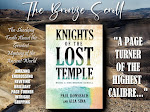


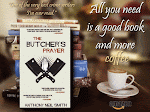
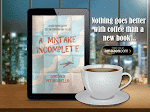
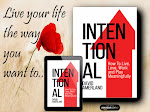
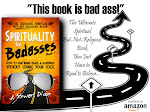

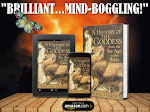

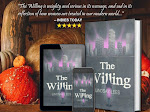
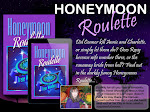
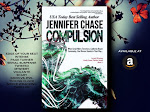
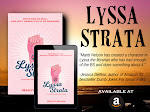
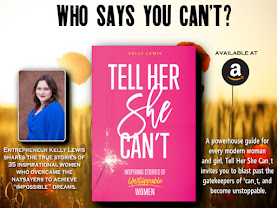










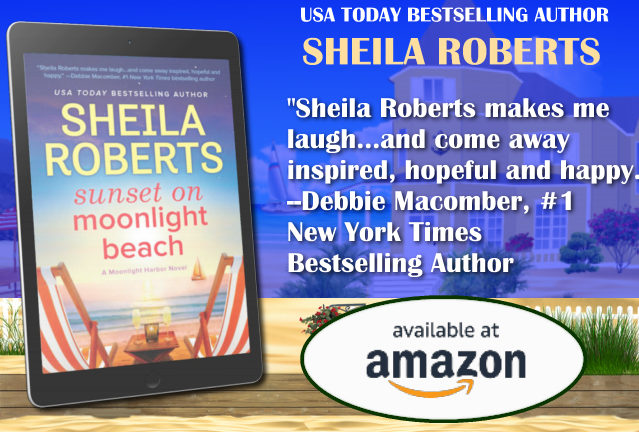
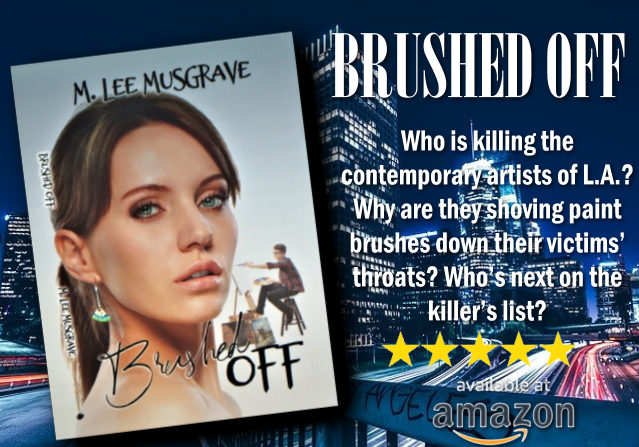


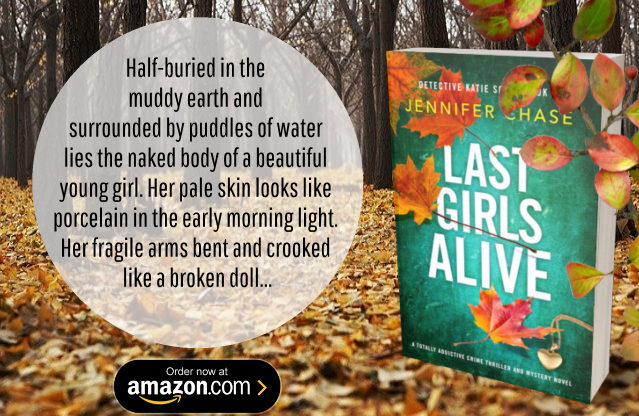
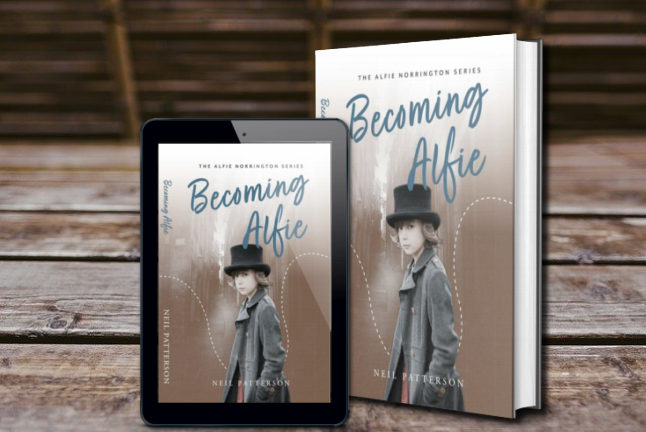
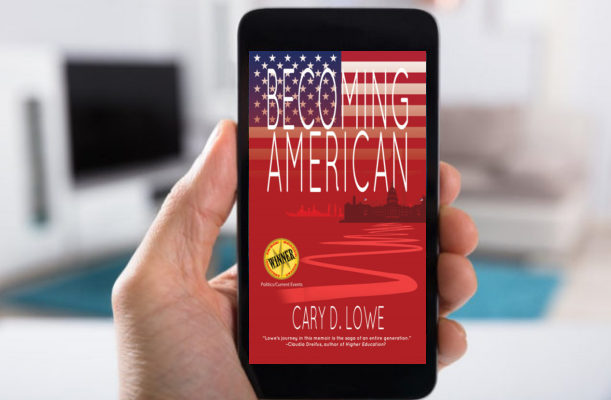

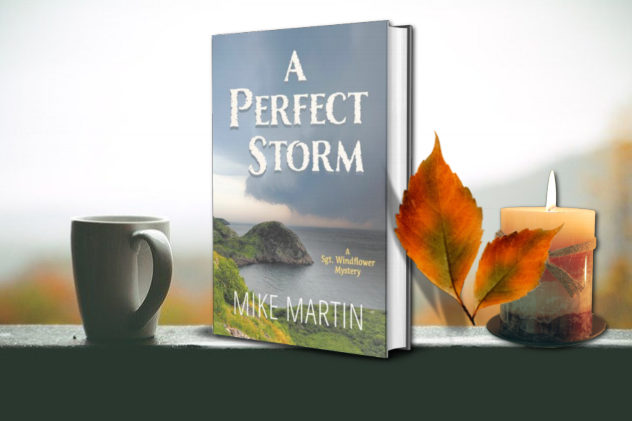
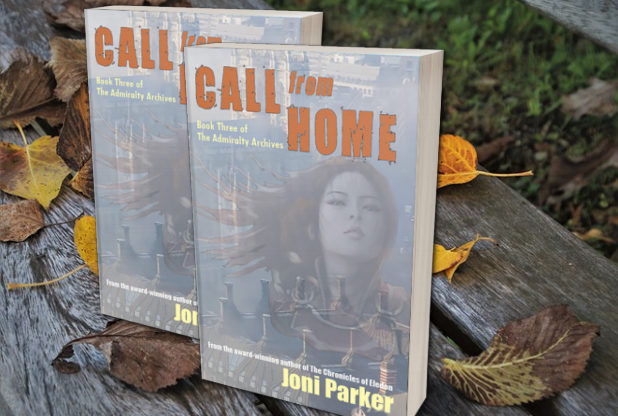
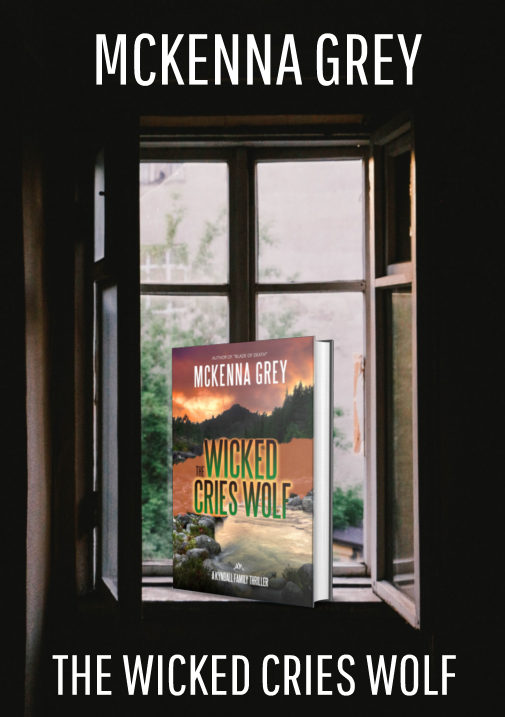


Leave a Comment